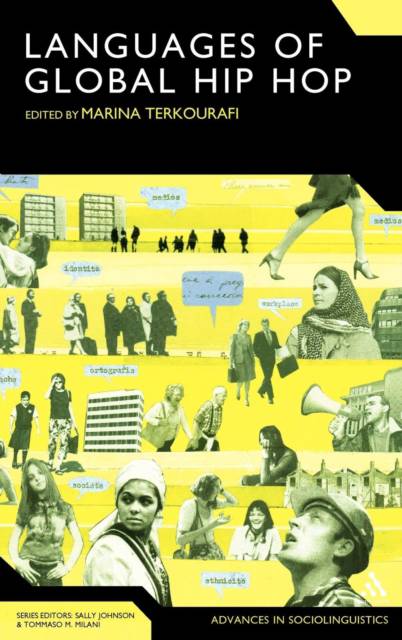
- Afhalen na 1 uur in een winkel met voorraad
- Gratis thuislevering in België vanaf € 30
- Ruim aanbod met 7 miljoen producten
- Afhalen na 1 uur in een winkel met voorraad
- Gratis thuislevering in België vanaf € 30
- Ruim aanbod met 7 miljoen producten
Zoeken
The Languages of Global Hip Hop
€ 440,95
+ 881 punten
Omschrijving
In the case of hip-hop, the forces of top-down corporatization and bottom-up globalization are inextricably woven. This volume takes the view that hip-hop should not be viewed with this dichotomous dynamic in mind and that this dynamic does not arise solely outside of the continental US. Close analysis of the facts reveals a much more complex situation in which market pressures, local (musical) traditions, linguistic and semiotic intelligibility, as well as each country's particular historico-political past conspire to yield new hybrid expressive genres. This exciting collection looks at linguistic, cultural and economic aspects of hip-hop in parallel and showcases a global scope. It engages with questions of code-switching, code-mixing, the minority language/regional dialect vs. standard dynamic, the discourse of political resistance, immigrant ideologies, youth and new language varieties and will be essential reading for graduates and researchers in sociolinguistics and discourse analysis.
Specificaties
Betrokkenen
- Uitgeverij:
Inhoud
- Aantal bladzijden:
- 352
- Taal:
- Engels
- Reeks:
Eigenschappen
- Productcode (EAN):
- 9780826431608
- Verschijningsdatum:
- 22/09/2010
- Uitvoering:
- Hardcover
- Formaat:
- Ongenaaid / garenloos gebonden
- Afmetingen:
- 157 mm x 234 mm
- Gewicht:
- 698 g

Alleen bij Standaard Boekhandel
+ 881 punten op je klantenkaart van Standaard Boekhandel
Beoordelingen
We publiceren alleen reviews die voldoen aan de voorwaarden voor reviews. Bekijk onze voorwaarden voor reviews.






